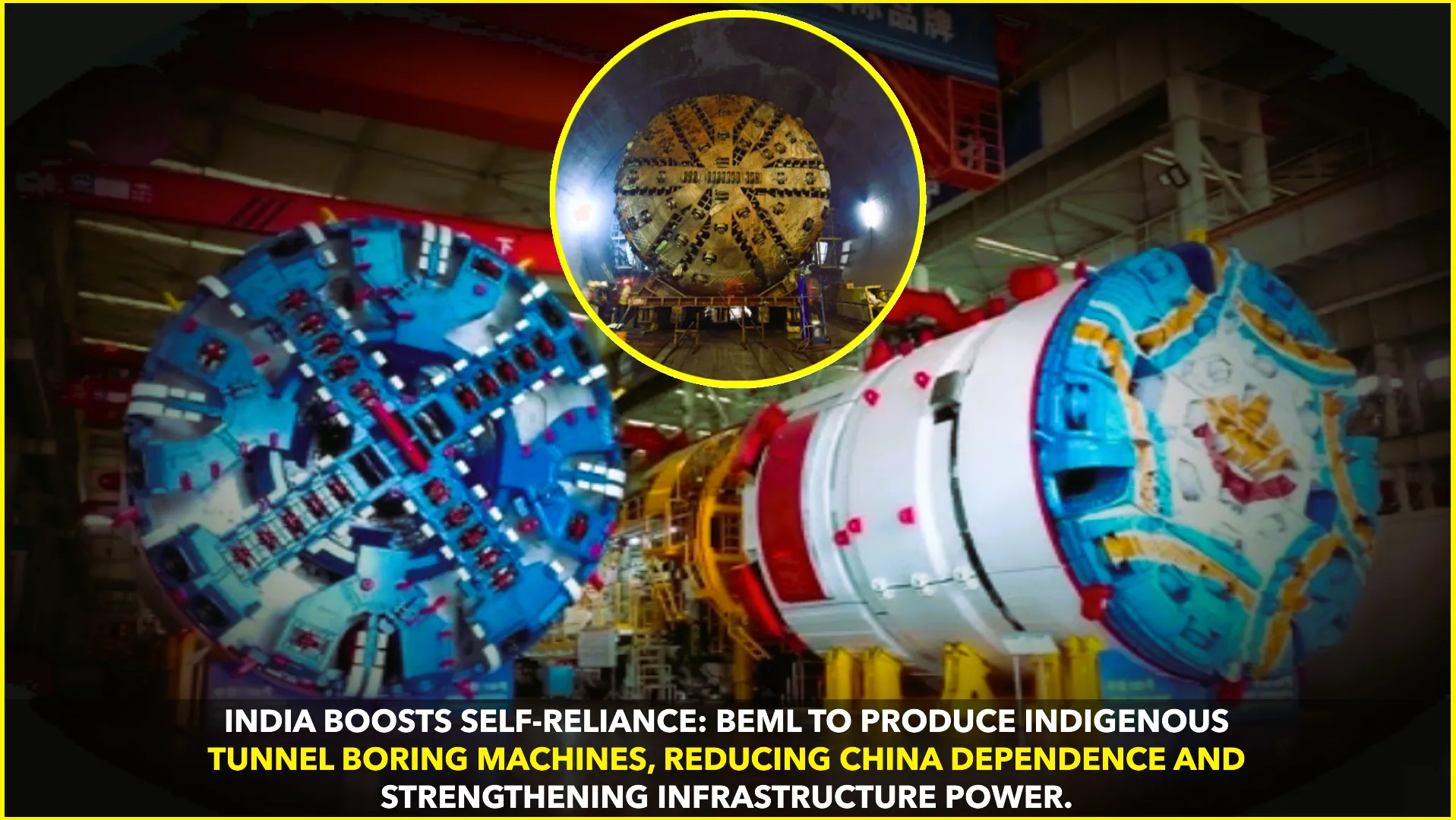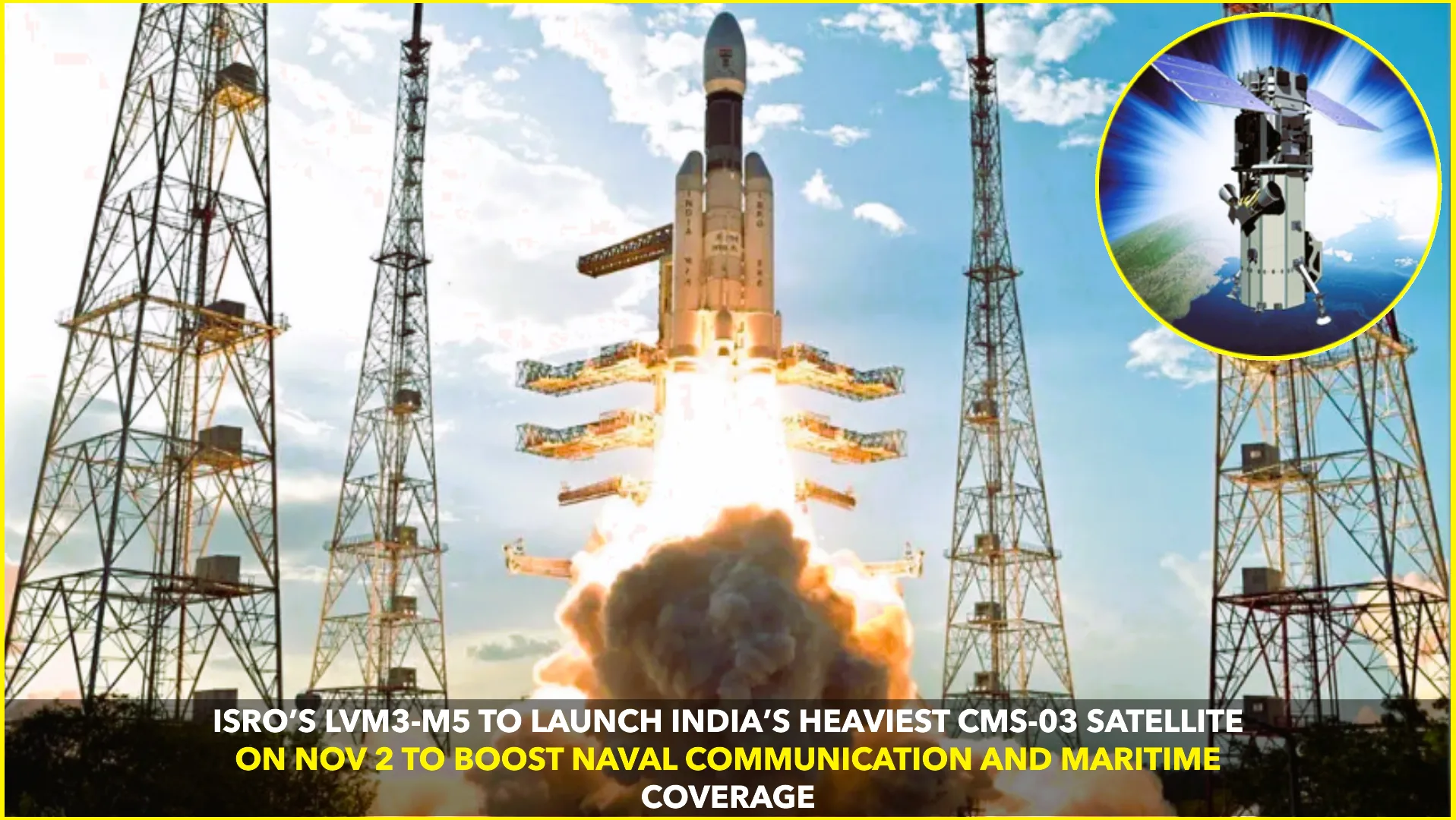India has taken another bold step in its journey towards self-reliance under the Atmanirbhar Bharat vision. Bharat Earth Movers Limited (BEML), a public sector company under the Ministry of Defence, has announced plans to manufacture indigenous Tunnel Boring Machines (TBMs). This initiative is expected to significantly reduce India’s dependence on imported machines, particularly from China, and strengthen the country’s infrastructure capabilities.
Why Tunnel Boring Machines Matter
Tunnel Boring Machines are massive engineering marvels used to dig tunnels for metro rail, underground roadways, and other urban infrastructure projects. These machines are critical for rapid urbanization and infrastructure development, enabling efficient underground construction while minimizing disruption above ground.
Until now, India has relied heavily on imports for TBMs, with a large number sourced from Chinese manufacturers. This dependence not only raised costs but also created risks of delays due to supply chain issues and geopolitical tensions. With BEML stepping in to design and build TBMs domestically, India is poised to achieve greater autonomy in a sector vital to urban growth.
A Strategic Leap in Atmanirbhar Bharat
The move aligns with Prime Minister Narendra Modi’s call for Make in India and Atmanirbhar Bharat. Manufacturing TBMs within the country will save precious foreign exchange, create jobs, and open up opportunities for Indian engineers and manufacturers to innovate in high-end tunneling technology.
BEML, which has decades of expertise in heavy engineering, defense equipment, and rail coaches, is uniquely positioned to take on this challenge. By leveraging its manufacturing facilities and collaborating with research institutions, the company plans to develop TBMs tailored to Indian soil and geological conditions—something imported machines often struggle with.
Boost to Metro and Urban Infrastructure
India is currently witnessing rapid expansion of metro rail projects. Cities like Delhi, Mumbai, Bengaluru, Chennai, Pune, and Ahmedabad are expanding their networks to meet the growing demands of urban commuters. Metro tunneling requires dozens of TBMs, and having a domestic manufacturer will ensure faster procurement, lower costs, and less reliance on foreign suppliers.
In addition to metros, indigenous TBMs will also be crucial for building underground road tunnels, water supply networks, sewage systems, and hydropower projects across hilly regions. The ability to design machines suited to India’s diverse terrain—from soft alluvial soils to hard rock—will make projects more efficient and sustainable.
Reducing Dependence on China
China has long dominated the global TBM market. Many Indian metro projects have been dependent on Chinese machines, creating a vulnerability in supply chains. By producing its own TBMs, India reduces this dependency, strengthens its strategic autonomy, and sends a strong signal about its technological capabilities.
Experts note that while the initial cost of setting up TBM production may be high, the long-term benefits far outweigh the investment. Indigenous production will bring down overall project costs, reduce import bills, and enhance India’s standing as a manufacturing hub for advanced engineering equipment.
Employment and Skill Development
The project is also expected to generate thousands of jobs, both directly and indirectly. Engineers, technicians, and skilled workers will find opportunities in design, manufacturing, and maintenance of TBMs. Moreover, it will push Indian universities and research bodies to invest more in tunneling technology and geotechnical engineering, creating a cycle of innovation and skill development.
A Step Towards Export Potential
In the long run, India could also aim to export TBMs to other developing nations in Asia, Africa, and the Middle East that are investing in underground infrastructure. BEML’s entry into TBM manufacturing could eventually position India as a global supplier, much like it has done with rail coaches and defense equipment.
Looking Ahead
With this decision, India is not just building machines—it is building confidence in its own capabilities. The development of indigenous TBMs will mark a new chapter in the country’s infrastructure story, helping metros and tunneling projects move faster while ensuring that technology and knowledge stay within the country.
As BEML gears up to roll out the first made-in-India Tunnel Boring Machine, the message is clear: India is ready to dig deep—literally and figuratively—on its path to becoming self-reliant and future-ready.










